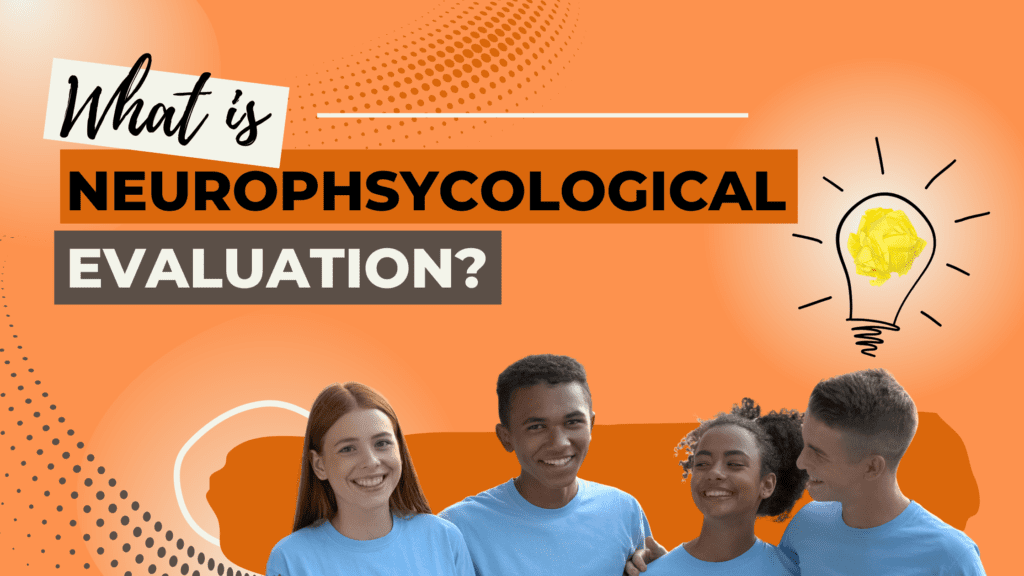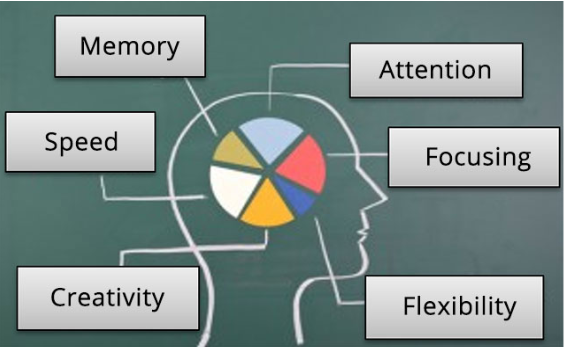
10 Aug What is a Neuropsychological Evaluation and its Purpose?
What Happens During a Neuropsychological Evaluation?
⏩Need A Neuropsychology Referral?⏪
What is a Neuropsychological Evaluation and its Purpose?
Introduction
Neuropsychology sounds like a heavy word. So, let’s break it down to make it easier to understand. Neuro means having to do with the nerves or the nervous system.
Psychology refers to the study of the human mind and behavior. So, neuropsychology is a specialized branch of psychology that governs the interrelationship between the nervous system and human behavior.
On the other hand, neuropsychological evaluation refers to a test that assesses neuropsychological health. It explains how well someone performs cognitively and covers aspects like memory, problem-solving, and personality.
Diagnosing if executive functions are working properly is also one of the major purposes of neuropsychological evaluation.
There can be many situations in which an individual warrants a neuropsychological evaluation. However, it is natural to wonder how professionals conduct this test in the first place.
What happens in a neuropsychological evaluation?
A neuropsychological evaluation or assessment includes assessing whether the patient brain is functioning as expected. Since it is a standardized test, results depend on comparison with others.
The examiner compares the score to individuals considered to have healthy cognitive functions. Typically, the test has questions on traditional mediums like pen and paper or electronically.
A neuropsychologist needs to administer the test because they can compare previous cognitive strength and weakness patterns with the test results. They also review prior medical records, which can also include educational history.
An interview also takes place to observe the individual’s mental and behavioral capabilities. At times, interviews with family members may also take place.
They divide the scores into standard and abnormal. A bell curve helps differentiate between the results that fall into these categories.
Purpose of Neuropsychological Evaluation
With the help of neuropsychological evaluation, one can also determine underlying psychological or neurological disorders that may lead to difficulties in cognitive abilities.
The human brain has many cognitive functions. Individually and collectively, they have an impact on mental and behavioral patterns. To assess each function of the brain, a neuropsychological evaluation consists of many tests. Evaluating them is necessary since many neurons in the human brain interconnect cognitive processes.
These assessments test the following abilities of the brain:
- Intelligence
- Memory
- Perception
- Language
- Processing
- Reasoning
- Problem-solving
- Self-control
- Multi-tasking skills
- Sensory-motor functions
- Moods
- Emotions
- Personality changes
- Organization skills
According to Dr. Elena Ostroy, Ph.D., ABN (Board Certified Neuropsychologist), here are some common concerns that a neuropsychological evaluation can address:
- Behavioral challenges at school or home
Does your child get out of their seat, stare into space, yell out the answers, often make careless mistakes, or has trouble paying attention? - Academic or school-related difficulties
In general, are there frequently occurring challenges in reading, writing, math, or school work, perhaps even despite the extra help with the challenging subject(s)? - Developmental concerns
➡ Are there concerns about the child’s social development?
➡ Does the child seem less interested in other children and have difficulty making friends or communicating with others?
➡ Does she or he show unusual or particularly intense interests or attachments?
➡ Are there concerns about their sensory-motor development? - Neurological condition
Has your child been diagnosed with a neurological condition (e.g., epilepsy, autism, congenital syndrome, lead, or other toxic exposure) associated with cognitive difficulties? - Head injury
Did your child recently experience a concussion/brain injury that appears to be affecting their memory, focus, academic performance, mood, or behavior?
These tests are often taken in quiet environments or remotely to ensure accurate results. For any evaluated cognitive dysfunction, they also consider the severity of the problem.
1. The integrity of cognitive functions
They design each one to test an independent function of the brain. However, observing the test results helps to understand the person’s cognitive strengths and weaknesses. Looking at the parts collectively allows us to determine future changes in mood or other cognitive abilities.
The evaluation helps in determining daily functioning. Such regular tasks include financial management, time management, studying, and reading, among many others. The assessment aims to clarify which cognitive functions are strong or weak and how they affect the individual’s daily life.
2. Differential diagnosis – to confirm or clarify a diagnosis
A differential diagnosis aims to assess if any mental or behavioral changes result from any other brain disease. It could also help understand how a person’s behavior changes after a particular neurologic illness.
A confirmed diagnosis could help prevent or assist in treating Parkinson’s disease. It can also help understand any sudden changes due to an underlying condition.
3. Choosing the right education and treatment plan
Neuropsychological evaluation and treatments may vary from one individual to another. Treatment recommendations are not only dependent on the illnesses or diagnosis. They could be catered to the individual’s needs as well.
Although the test is standardized, the cognitive strength levels can differ from one patient to another. Compared with other tests, a neuropsychological evaluation can give information about brain functioning. It can be before or even after neurosurgical procedures.
For example, depending on which cognitive functions are weak, treatment choices may include pharmacotherapy, occupational therapy, speech-language therapy, and behavioral therapy, among others. A neuropsychological assessment can determine which treatment plan or method could be beneficial in strengthening the weaker functions of the human brain.
Summary
A neuropsychological evaluation can aid in assessing various brain functions and uses a standardized system to test the levels of different cognitive strengths. The results determine performance and improve weaknesses at work, school, or home.
A healthy brain results from memory, intelligence, perception, attention, and other cognitive functions working well together. A neuropsychological evaluation will uncover an individual’s strengths and weaknesses to determine the best interventions to help them succeed in life, given their circumstances.
Check out our other blogs:
⏩ Why Get a Neuropsychological Evaluation?
⏩ What Does a Neuropsychological Evaluation Tell You?
⏩ Pediatric Neuropsychological Assessment FAQs
Want to learn more about what is a neuropsychological evaluation and its purpose? Chat with Themba Tutors Today!
We will connect you to some of the best neuropsychologists in the New York City metro area!
Call: (917) 382-8641, Text: (833) 565-2370
Email: [email protected]
(We respond to email right away!)
Craig Selinger
Latest posts by Craig Selinger (see all)
- Psychotherapy and Support Services at Cope With School NYC - April 12, 2024
- NYC Parents of Teens Support Group - April 8, 2024
- Here I Am, I Am Me: An Illustrated Guide to Mental Health - April 4, 2024




No Comments